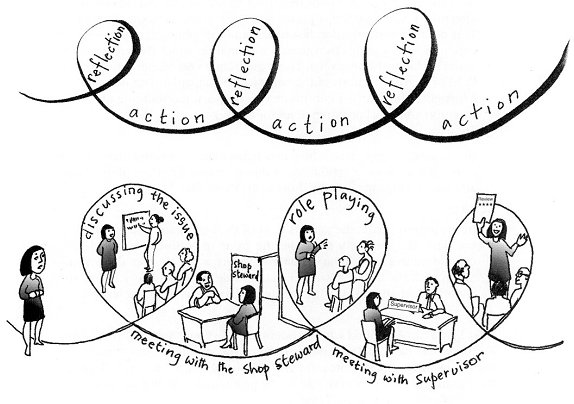
SECTION 1 - A FRAMEWORK FOR CURRICULUM AND MATERIALS DEVELOPMENT
A problem-posing approach is generative. As participants describe and reflect on their situations and develop skills, knowledge and critical awareness that enable them to engage with their situations in new ways, both they and their situations are transformed. Reflection on this new reality leads to new goals and so, as the participants evolve, so, too, must the curriculum. A problem-posing curriculum goes through cycles - as one cycle is completed, a new cycle is generated.
As we can see from our practical example of the action and reflection cycle, we cannot know in advance what is going to arise when participants engage in a problem-posing process. Therefore, this approach requires sufficient flexibility in the curriculum to permit the integration of the significant learning experiences generated by the action and reflection cycle.
